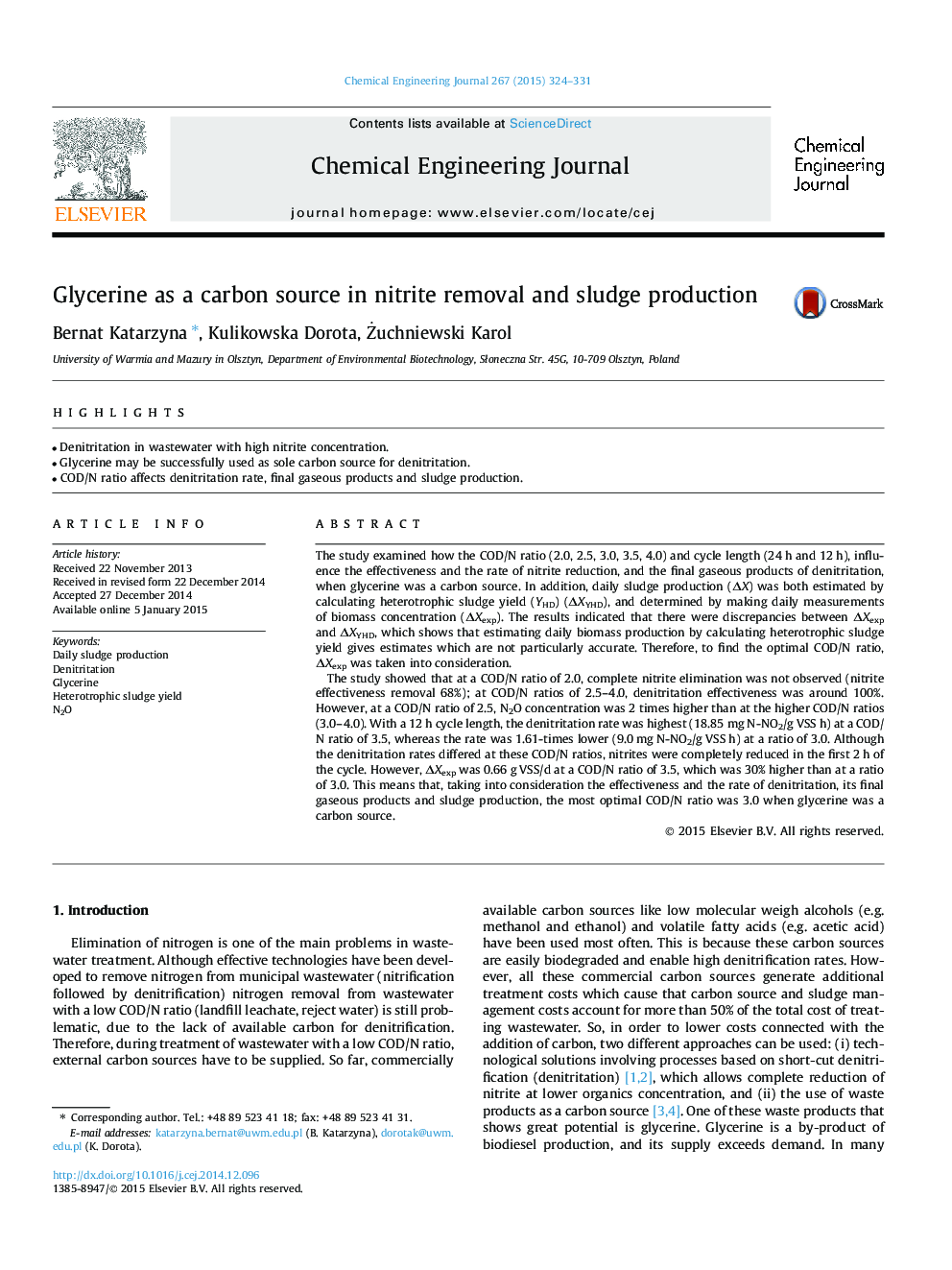| Article ID | Journal | Published Year | Pages | File Type |
|---|---|---|---|---|
| 146625 | Chemical Engineering Journal | 2015 | 8 Pages |
•Denitritation in wastewater with high nitrite concentration.•Glycerine may be successfully used as sole carbon source for denitritation.•COD/N ratio affects denitritation rate, final gaseous products and sludge production.
The study examined how the COD/N ratio (2.0, 2.5, 3.0, 3.5, 4.0) and cycle length (24 h and 12 h), influence the effectiveness and the rate of nitrite reduction, and the final gaseous products of denitritation, when glycerine was a carbon source. In addition, daily sludge production (ΔX) was both estimated by calculating heterotrophic sludge yield (YHD) (ΔXYHD), and determined by making daily measurements of biomass concentration (ΔXexp). The results indicated that there were discrepancies between ΔXexp and ΔXYHD, which shows that estimating daily biomass production by calculating heterotrophic sludge yield gives estimates which are not particularly accurate. Therefore, to find the optimal COD/N ratio, ΔXexp was taken into consideration.The study showed that at a COD/N ratio of 2.0, complete nitrite elimination was not observed (nitrite effectiveness removal 68%); at COD/N ratios of 2.5–4.0, denitritation effectiveness was around 100%. However, at a COD/N ratio of 2.5, N2O concentration was 2 times higher than at the higher COD/N ratios (3.0–4.0). With a 12 h cycle length, the denitritation rate was highest (18.85 mg N-NO2/g VSS h) at a COD/N ratio of 3.5, whereas the rate was 1.61-times lower (9.0 mg N-NO2/g VSS h) at a ratio of 3.0. Although the denitritation rates differed at these COD/N ratios, nitrites were completely reduced in the first 2 h of the cycle. However, ΔXexp was 0.66 g VSS/d at a COD/N ratio of 3.5, which was 30% higher than at a ratio of 3.0. This means that, taking into consideration the effectiveness and the rate of denitritation, its final gaseous products and sludge production, the most optimal COD/N ratio was 3.0 when glycerine was a carbon source.
